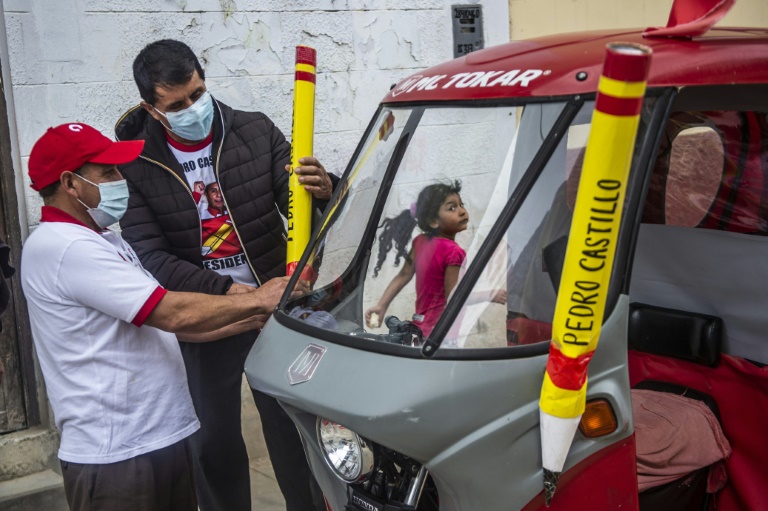Peruvians face a polarizing choice between right-wing populist Keiko Fujimori and radical leftist Pedro Castillo when they elect a new president on Sunday, in a country desperate for an end to years of political turbulence.
The new leader will need to tackle a country in crisis, suffering from recession and with the worst coronavirus fatality rate in the world after recording over 184,000 deaths among its 33 million population.
And after four presidents in the last three years and with seven of the last 10 of the country’s leaders either having been convicted of or investigated for corruption, Peruvians will look to their next leader to bring an end to the recent turbulence.
The nation’s more than 11,000 voting centers opened at 1200 GMT, with the first results expected after 11:00 pm on Sunday (0400 GMT Monday).
At the height of the political storm in November last year, Peru had three different presidents in just five days.
Two million Peruvians have lost their jobs during the pandemic and nearly a third of the country now live in poverty, according to official figures.
Fujimori, 46, and Castillo, 51, caused a surprise when taking the top two spots in April’s first round of voting.
Now voters must decide between their polar opposite economic and political programs.
In the most recent poll, Castillo had a two-percentage-point edge, but 18 percent of people remained undecided in a country where voting is obligatory.
Fujimori, the daughter of disgraced and jailed former president Alberto Fujimori, represents the neoliberal economic model of tax cuts and boosting private activity to generate jobs.
Speaking to journalists and supporters, she promised to “respect the popular will,” no matter the outcome of the voting.
Trade unionist schoolteacher Castillo has pledged to nationalize vital industries, raise taxes, eliminate tax exemptions and increase state regulation.
Fujimori’s bastion is the capital Lima, while Castillo’s bulwark is the rural deep interior.
“We’re fed up with always being governed by the same people, we want Peru to change,” Martha Huaman, 27, a fruit seller in Tacabamba, in the Cajamarca region where Castillo lives, told AFP.
“For us it’s a dream, it’s an awakening, we’re really happy to be with” Castillo, said evangelical priest Victor Cieza Rivera, whose church is attended by the presidential candidate’s wife Lilia Paredes.
Tacabamba and other villages in Cajamarca are full of posters for Castillo, who topped the first round of voting.
– ‘I don’t want to vote’ –
Favored by the business sector and middle classes, Fujimori has tried to portray Castillo as a communist threat, warning that Peru would become a new Venezuela or North Korea should he win.
Castillo has pointed to the Fujimori family’s history of corruption scandals. Keiko Fujimori is under investigation over campaign funding in her 2011 and 2016 presidential bids and has already spent 16 months in pre-trial detention.
Her father is serving a 25-year sentence for crimes against humanity and corruption.
For many in Peru this election is about the “lesser of evils.”
“I don’t even want to vote, neither of them deserve it, but Castillo panics me so I’m going to vote for Fujimori,” said trucker Johnny Samaniego, 51, who lives in Lima.
Whoever wins will have a hard time governing as Congress is fragmented. Castillo’s Free Peru is the largest single party, just ahead of Fujimori’s Popular Force, but without a majority.
If Fujimori wins “it won’t be easy given the mistrust her name and that of her family generates in many sectors. She’ll have to quickly calm the markets and generate ways to reactivate them,” political scientist Jessica Smith told AFP.
If Castillo triumphs, he’ll have to “consolidate a parliamentary majority that will allow him to deliver his ambitious program,” added Smith.
But in either case “it will take time to calm the waters because there’s fierce polarization and an atmosphere of social conflict,” analyst Luis Pasaraindico told AFP.
Some 160,000 police and soldiers have been deployed to guarantee peace on election day.
Some 25 million people will vote, plus another one million from the Peruvian diaspora living in 75 countries around the world.
The new president will take office on July 28, replacing centrist interim leader Francisco Sagasti.










